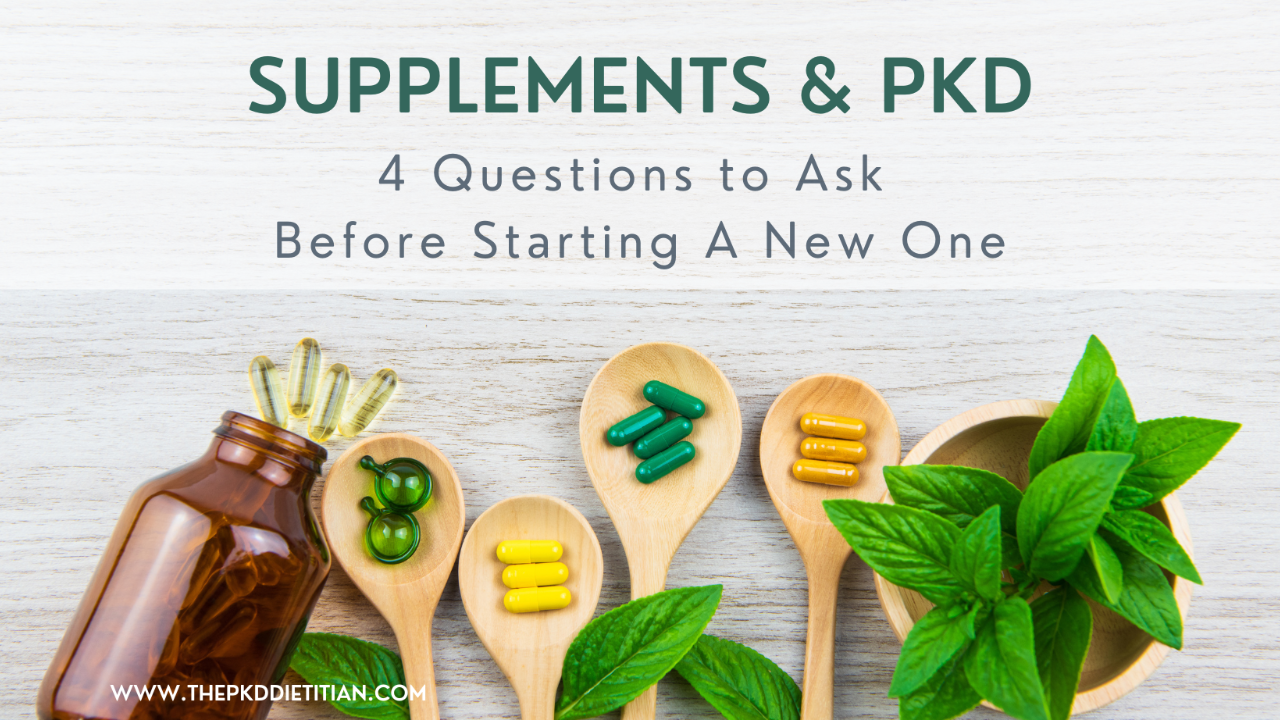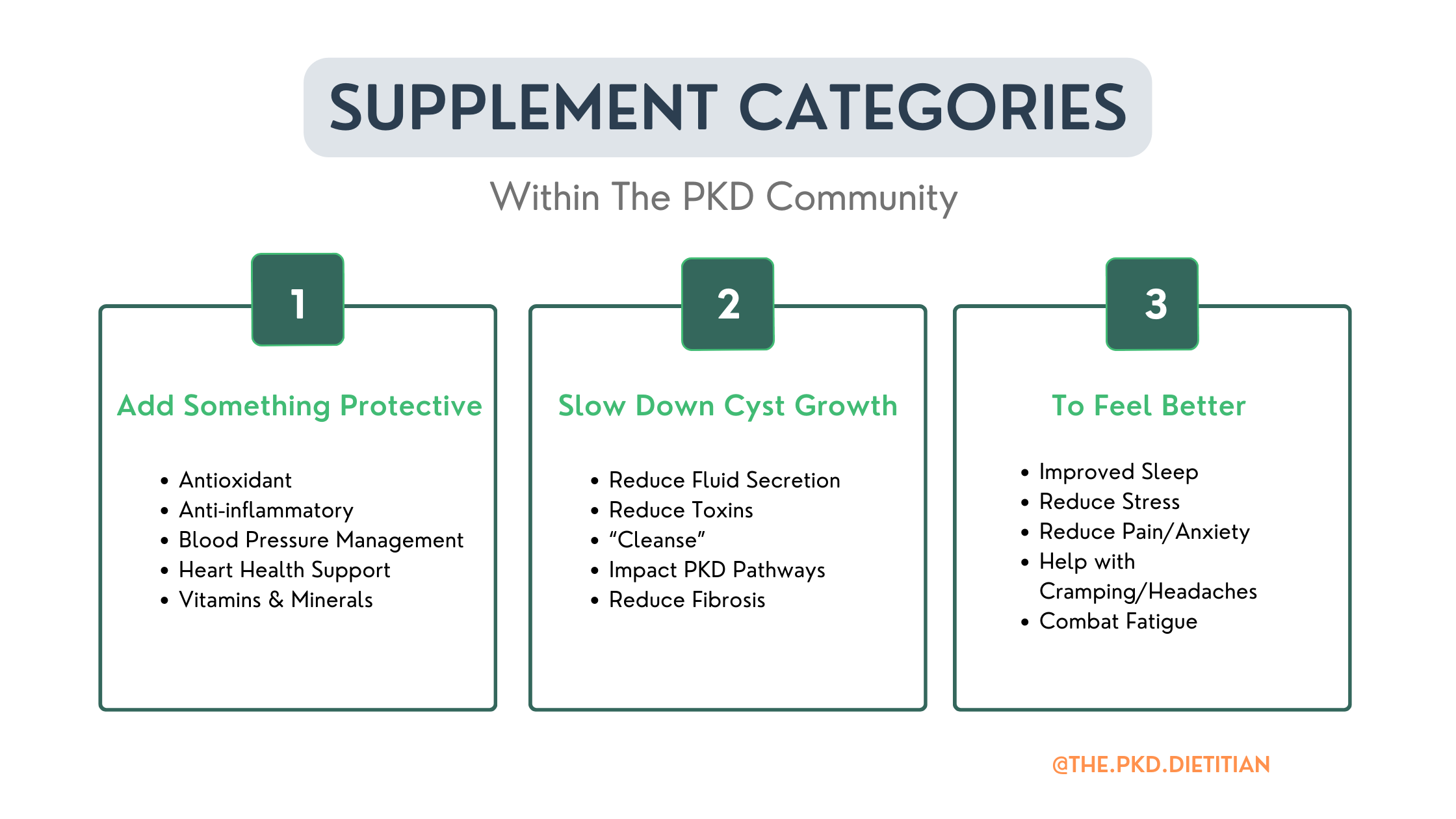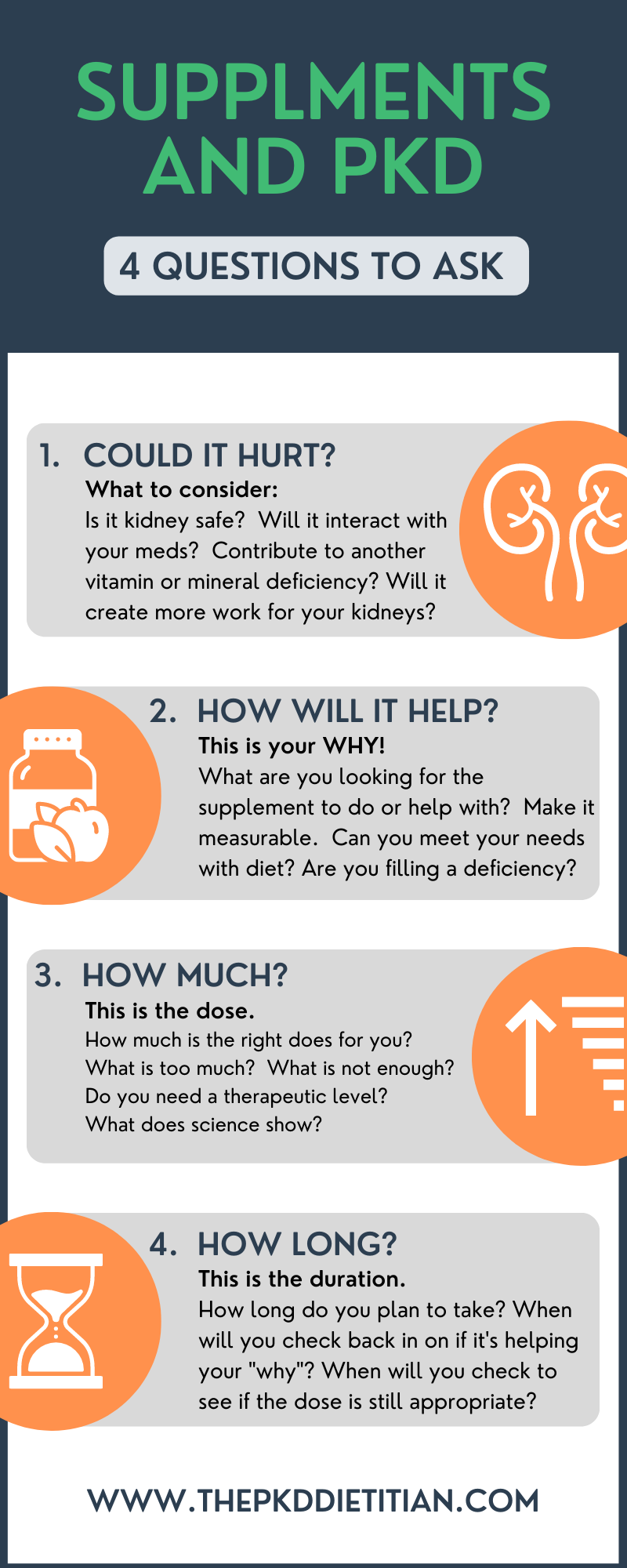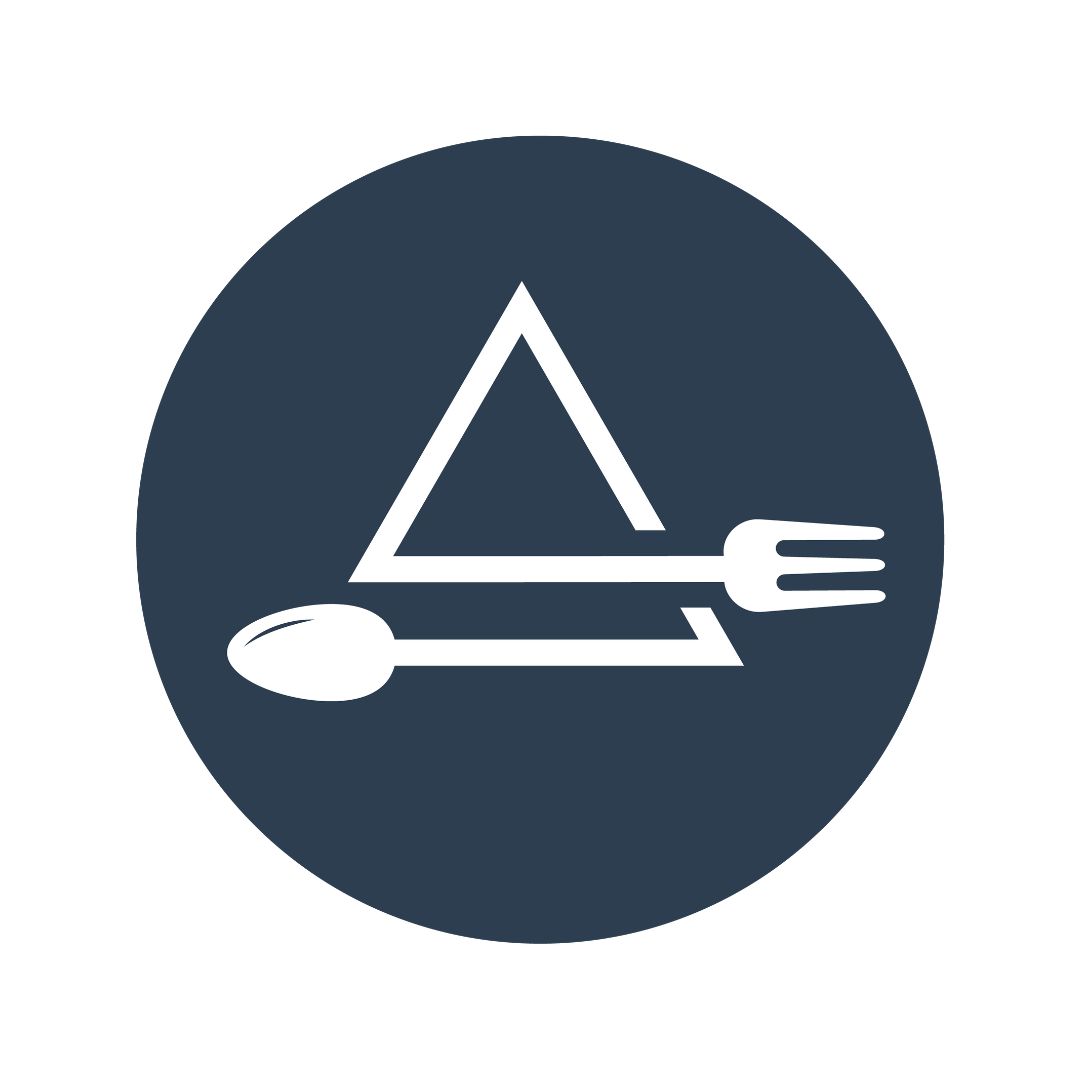
77% of Americans take a daily supplement, and the older we get the more supplements we typically take. Folks that are greater than 65 years old take an average of 4 supplements daily! (1,2,3)
It’s not surprising that the U.S. dietary supplement market size is expected to reach over 560 billion dollars by 2024. (4)
Looking at supplement usage with kidney disease, data supports that the percentages are very similar to the general population. (5, 6) This includes the usage of prescribed supplements like renal vitamins, but also over-the-counter herbal products, pills, powders, vitamins, and liquid-form supplements.
Google reports that over 880 people a month search for supplements to “cure” or “slow” PKD. I suspect this number is much higher based on online chatter and supplement regimens shared and promoted on social media.
In this blog, I will give you a set of 4 solid questions to ask yourself before starting any supplement. I want you to think before taking something "just because" you read about working wonders for someone else. I want you to avoid supplements that could harm your kidney, create unwanted side effects, and potentially negative interactions.
These 4 solid questions, plus a printable infographic, will help you explore, create, and make a plan for your supplementation.
What Are Dietary Supplements?
Originally, supplements were meant to fill in the gaps of an otherwise healthy diet, to be supplementary! This is still true, especially with kidney disease where therapeutic diets can have restrictions.
Today, in addition to helping fill gaps, supplements are frequently used to try and improve overall health and naturally treat a wide variety of diseases or ailments.
In 1994, the Dietary Supplement Health and Education Act was passed into law. The DSHEA Act defined supplements as any “product (other than tobacco) intended to supplement the diet that bears or contains one or more of the following dietary ingredients: a vitamin; a mineral; an herb or other botanical; an amino acid; a dietary substance for use by man to supplement the diet by increasing the total dietary intake; or a concentrate, metabolite, constituent, extract, or combination of any ingredient described.”
There is absolutely scientific evidence that some supplements can benefit your well-being with little to no risk. They are beneficial most often when there is a deficiency, higher need, a restrictive diet in place, or for certain disease states. Some more common supplements in this category are Vitamin B12, Vitamin D, Omega-3s, probiotics, and melatonin.(7, 8)
It is important to know your nutrition needs, and the supplements that could potentially benefit you should be highly individualized. Supplements aren’t meant to be your primary source of nutrients or nutrition. Always consults with your healthcare team and dietitian to discuss and fine-tune what is best for you.
Always consider potential stress, work, or harm a supplement could do to your kidney. But don’t stop there! Even supplements recommended for Chronic Kidney Disease (CKD)(9) or Polycystic Kidney Disease (ADPKD) that are recognized as “safe” can potentially be toxic and create additional health problems when taken at higher doses.
Supplement Usage and PKD
In my experience as The PKD Dietitian, 99% of clients, when they start working with me, are taking three or more supplements. To date, the record for most supplements stands at 18 per day!
I have found, when it comes to supplements and PKD, that each can generally be put into one of 3 categories. Those three categories really are the intended goal of taking the supplement. The goals are to add something beneficial, to combat PKD and cyst growth, or to help someone feel better.

There are lots of reasons people with Polycystic Kidney Disease start supplements. You can see some common reasons listed with each of the 3 categories. I bet you can relate to one or many of them...
So let's get to the questions you should ask yourself. The infographic below walks you through the 4 smart questions to ask before starting any new supplement! Use them to explore, create a smart plan, and have actionable steps for your smart supplementation.

>>> DOWNLOAD QUESTION GUIDE <<<
If you are interested in more details and examples of what specifically to look at, check out my recent podcast Episode 15! You can find the PKD Dietitian Podcast wherever you listen and on my website.
As you can see, deciding to take a supplement or not, how much to take, and for how long takes a bit of planning. I want you to always consider potential stress, work, or harm a supplement could do to your kidneys. Or any other part of you.
I want you to be intentional, educated, and safe with your supplementation. But don’t stop there! I want you to have a smart plan starting for any new supplement.
"The difference between poison and supplements is in the dose."
My slightly changed quote of the famous one about medicine originally credited to Paracelsus.
Recommendations For You
Talk with your MD, RD, or healthcare team before starting something new. You can use these 4 questions as a guide for that conversation.
Another great, and free, resource is to have your local pharmacist review supplements to identify any potential interactions with medications you are on. Just ask them for a medication review.
It is always beneficial to start one new supplement or change at a time. That way you will know how and if it affects you.
You’re unique, your supplement routine should be too!
No matter what your goal is for taking a supplement, know this, they aren’t a replacement for a nutrient-dense diet.
Looking for help with your supplement routine or a deep review? Book a Lab & Kidney Health Review today. I will walk through all of these questions with and for you, answer your supplement questions, make sure you are at a good dose, and much more!
Cheers,
Diana, The PKDietitian


